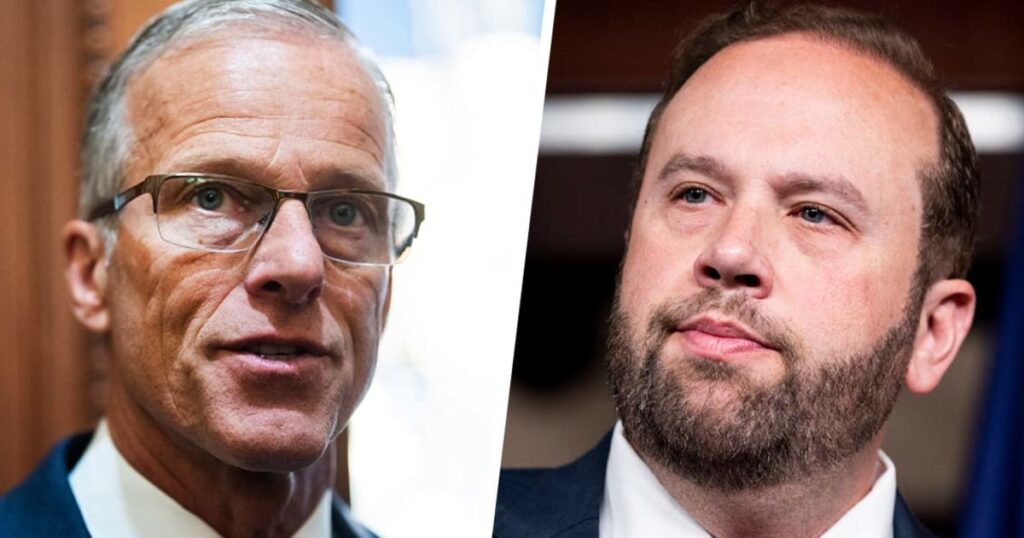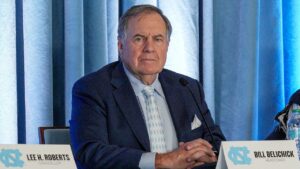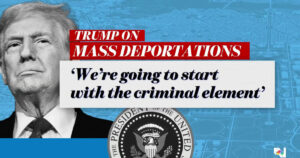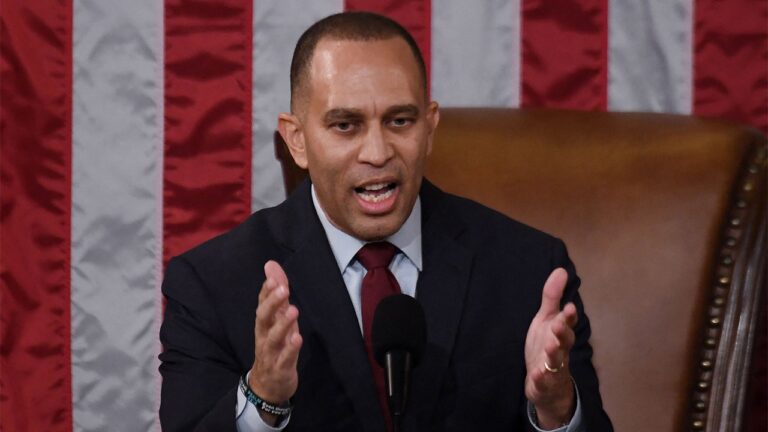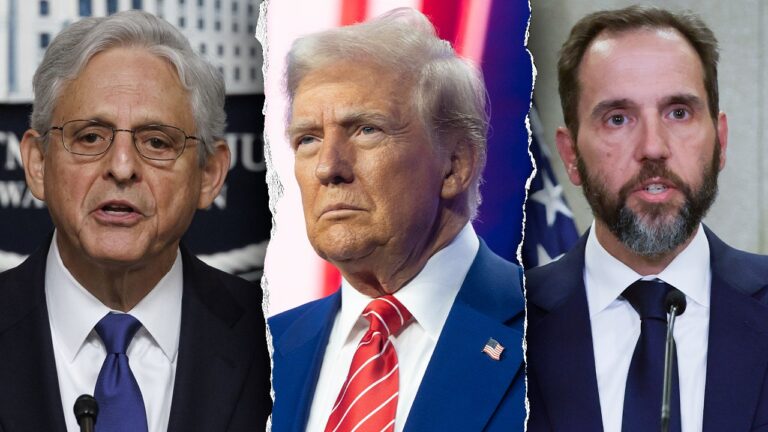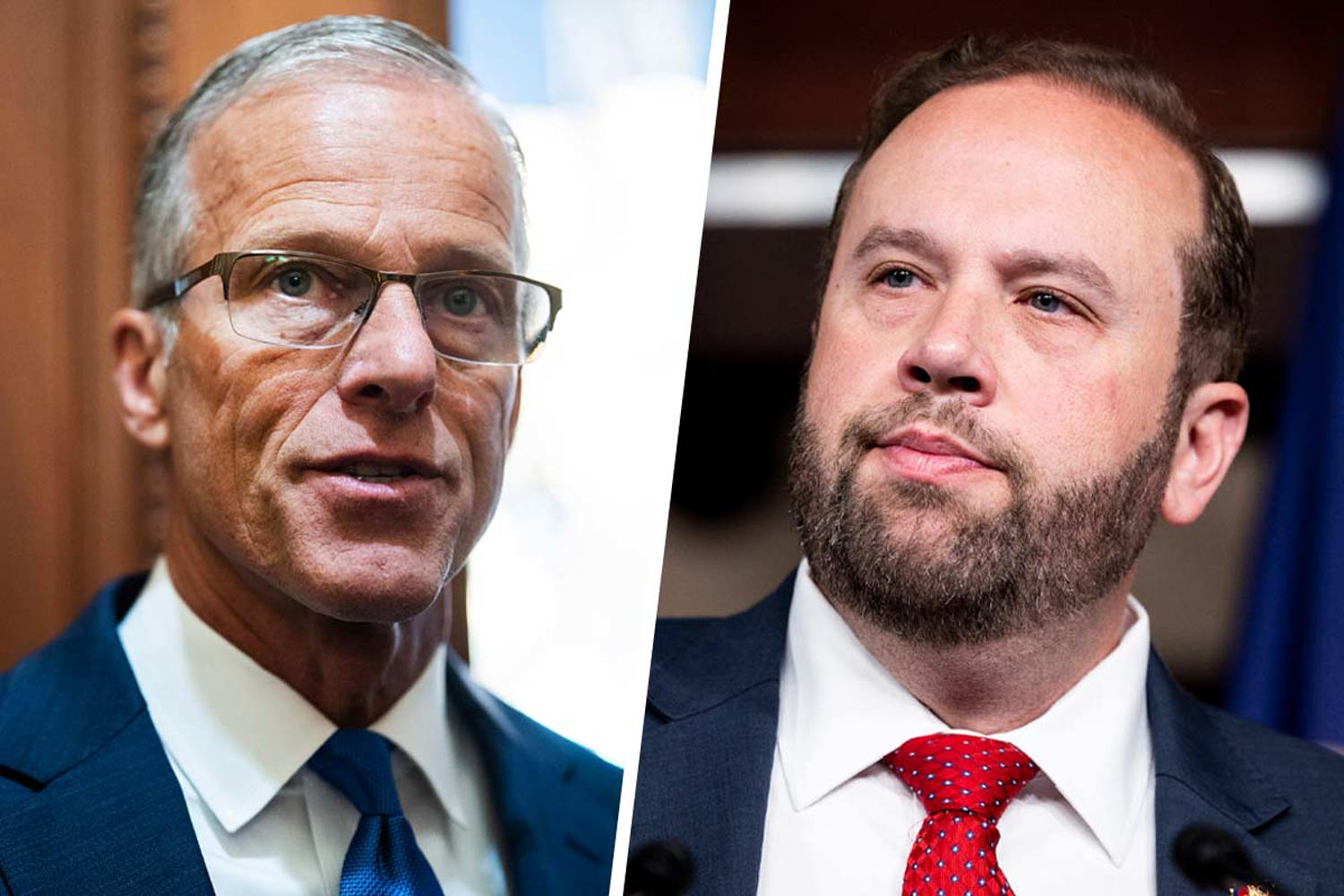
WASHINGTON — Top Republicans are divided over the best strategy to advance core components of President-elect Donald Trump’s agenda when the party gains a slim majority in Congress next year.
The new Congress will give Trump and Republicans the opportunity to pass major legislation without the need for any Democratic support under a process called “reconciliation.” But whether the GOP will try to link all of its top priorities together in a single package early next year or split major issues across two, smaller bills is a major subject of debate among top Republican leaders.
The House’s top tax writer, Ways and Means Committee Chair Jason Smith, R-Mo., is warning fellow Republicans against breaking the agenda up into two bills, in which border security and energy policy would come in the first and an extension of Trump’s 2017 tax cut law could come in the second.
Delaying the tax legislation risks jeopardizing it, Smith and his allies warn, so they want one sweeping package.
“My goal is to make sure we’re successful on making sure Trump’s tax cuts are made permanent and extended. That is my No. 1 focus. And I believe the best strategy to get that is to do one large bill,” Smith told reporters just off the House floor Tuesday.
“People above me will make the decision, but I’m telling you: I know how to get votes. I’ve been very successful getting votes. I know the House on tax policy better than anyone else,” Smith continued. “If they want to give me the best opportunity to pass the president’s tax plan, make it all in one bill.”
Smith spoke just hours after incoming Senate Majority Leader John Thune, R-S.D., who has been pushing for the two-bill strategy, publicly made his case for it.
“In my view, it makes sense to move quickly on things we know we can do quickly — border, defense, energy,” Thune told reporters. “And then come back with another package that would address some of the savings that can be achieved through reductions in cost in various agencies and bureaucracies and government programs and then also deal with the expiring Trump tax cuts in a package later this year.”
“But I think we can do both,” Thune said. “We’ve got an opportunity to have a couple of different chances at a reconciliation package that would achieve all those objectives.”
Asked by NBC News on Tuesday whether it would be wiser to do tax cuts in the first package, Speaker Mike Johnson, R-La., said that Republicans are still deciding the “sequence” and that he plans to discuss reconciliation when he sees Trump this weekend at the Army-Navy football game.
Reconciliation allows Congress to pass party-line policies involving taxes and spending with majority votes, bypassing the Senate’s 60-vote requirement for legislation. But with just 53 seats in the Senate and 220 in the House next year, nearly every Republican will need to agree for it to succeed.
Johnson said he didn’t need to be reminded of the political debacle in 2017 when Republicans spent seven months of Trump’s first year in office trying to repeal the Affordable Care Act through reconciliation and came up empty.
“We’re having lots of thoughtful discussions about the best play call. … What we’re deciding right now is the sequence of how we run those plays,” Johnson said.
“And it’s really important. The House and the Senate have different calculations on how that’s done, but we all have exactly the same priorities,” he said, emphasizing securing the border and staving off tax hikes when some of the Trump tax cuts expire at the end of next year.
Trump indicated Sunday on NBC News’ “Meet the Press” that there would be two bills. “We have a lot of other things. I have tax cuts. You know, we’ll be submitting in either the first or second package to Congress the extension of the tax cuts,” he told moderator Kristen Welker. “So that might very well be in there. Or, or it’ll come sometime after that.”
But Trump has communicated to lawmakers through his two point people on reconciliation — incoming White House deputy chief of staff for policy Stephen Miller and Trump’s pick to lead the Office of Management and Budget, Russell Vought — that he wants to tackle border security within his first 30 days and leave tax cuts until later, according to a Republican source familiar with the discussions.
Underneath the division are multiple obstacles for Republicans.
First, Senate rules restrict reconciliation bills to matters of taxes and spending. That means regulatory provisions or tougher asylum laws could be stripped out.
Second, Republicans have a paper-thin House majority of 220-215, with no realistic hope of winning Democratic votes. That is likely to shrink further in the early part of Trump’s presidency with the resignation of Matt Gaetz, of Florida, and the expected resignations of Elise Stefanik, of New York, and Mike Waltz, of Florida, who are expected to leave for jobs in the Trump administration.
Corralling nearly every Republican vote will be a daunting task under any circumstance. If one or both packages are projected to add substantially to the debt, it could create a vote-count problem for House GOP leaders.
Conversely, if the GOP breaks up the bills and uses its most valuable “pay-fors” on the first package of border and energy items, it could leave fewer options to limit the deficit impact of the second bill, creating problems securing the votes for it.
Rank-and-file Republicans are also divided over the best approach. Conservative Rep. Warren Davidson, of Ohio, said he wants one package for fiscal year 2025 and another for 2026. But former House Freedom Caucus Chairman Andy Biggs, of Arizona, is pushing for one sweeping reconciliation package, saying he’s worried Republicans might not even get a crack at a second one later in the year because of unforeseen circumstances.
“We should be doing the biggest reconciliation package you possibly can conceive of the first time around. I’m not sure you even get the second reconciliation package,” Biggs told NBC News on Tuesday.
Asked what would prevent the GOP from getting to a second bite at the apple, Biggs said: “Well, for one thing, you had 30 extra votes in 2017 that you don’t have today.”
Oversight Committee Chairman James Comer, R-Ky., said, “One bill is better than two,” adding that he, Biggs and Johnson were all freshman lawmakers in 2017.
And Rep. Tim Walberg, R-Mich., a member of the Energy and Commerce Committee, said he’s “standing with Jason,” meaning Smith, the Ways and Means chair, and prefers a single package.
“I don’t fear doing one package at all, but I think we ought to do it immediately,” Walberg said in an interview. “I think the American people voted that way: They wanted border control, and they want tax cuts.”
Rep. Greg Murphy, R-N.C., a Ways and Means Committee member, said he doesn’t feel strongly about either approach, predicting that Republicans will find enough savings by cutting “waste and reckless spending over the last four years” during the Biden administration.
“Two versus one? I can understand the rationale behind that. You want to get a win upfront,” Murphy said. “I can see both sides. I don’t have a particular preference at this point.”

